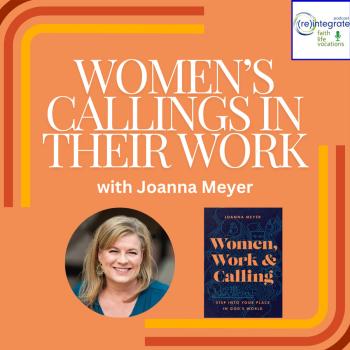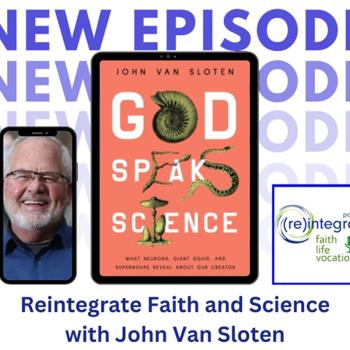 Staying at home during the Coronavirus pandemic has been disorienting. For some of us, this has caused anxiety.
Staying at home during the Coronavirus pandemic has been disorienting. For some of us, this has caused anxiety.
Raise your hand if it has manifested itself in frantic attempts to find control. Raise your hand if it became debilitating so that you found yourself strangely apathetic (Bob raises his hand, virtually, so you can’t see him).
As I discussed this with my psychologist a few days ago (of course, on a telehealth call), I became aware of what was happening: the disconnection to the way I usually do my work was having a strange effect on my emotions.
Usually, I am always meeting and interacting with people. I get energized when I can talk with folks and process their needs and explore solutions with them. I love discipleship and teaching. This is heavy relational work and I love it. This is what I do in my occupation.
But my occupation has changed. And it shook me up. Quite a bit.
But what I realized during my HIPPA-approved conference call was that I needed to see things in light of vocation rather than occupation. (I wonder if the doctor could see the lightbulb above my head on her end of the call).
For the past several days, I’ve been processing things. What is getting me grounded and moving me forward is to go to the foundation and build from there.
What am I called to do?
The foundation is Vocation. The word “Vocation” is not the same as the word “Occupation.”
An occupation what we tell people when they ask us what we do. “I work for XYZ Company as a ________,which means that what I do is ________.”
Our occupation is what we do in a particular time and place. As such, it changes. “I work for the neighborhood coffee house as a Barista, crafting coffee drinks.” “I work for the electric company, shimmying up and down poles to make sure people have power.” “I am a mom, which means I manage my household and care for our children.” “I work for Dewey, Cheatem & Howe, where I’m a lawyer.” (FYI, that’s a joke).
We can see an occupation change if we leave where we work for another job. But it can often change right where we are now. New responsibilities are heaped upon us, or circumstances make it so our occupation needs to shift (perhaps uncomfortably) to another paradigm of duties.
But a “Vocation” is what we are called to do. “Vocation” comes from the Latin word that means “to call.” It is more foundational. And it is never just one thing; we have many “callings.”
So in order to get our bearings and to set our priorities during the pandemic, we need to start with Vocation, not Occupation.
Why? Because our occupations, as we’ve all known them, have been turned upside down or sideways. The way we’ve always done it won’t work anymore. The groove of our workflow is no longer there. Many of us are working from our homes, trying to meet the needs of the job and of the people we serve without our physical presence. We’re doing “virtual meetings,” so we now know that “Zoom” is more than what we do used to do when we raced home from work every night.
Discovering What I’m Called to Do Now
In chapter 7 of my book, Reintegrate Your Vocation with God’s Mission, I help folks discover the Bible’s three levels of callings. The top two levels, (1) “Follow Me” and (2) “Remain in Me,” are essential to get us on the right path and to have the resources to do what God has called us to do.
The third level of calling flows from the first and second callings and is particular to us and to our circumstances. It is the calling where Jesus says, “Work for me” (see Ephesians 2:10).
When fully living into these callings at level three, we are constantly and consistently doing two things:
- As God’s “workmanship,” we are always seeking to allow God to develop within us the gifts and skills to better serve others, and
- We are on constant watch for the work that God has prepared for us to do (see Ephesians 2:10).
The best way to discover these callings is to ask,
- What gifts and skills has God’s Spirit given me that make me unique and allows me to contribute?” and
- “Where has God placed me and what do I see needs to be done right now?”
So, I’m going back to basics.
First, I’m making sure I’m “remaining” or “abiding” in Christ. The college group I serve is working through Justin Whitmel Earley’s book The Common Rule: Habits of Purpose for an Age of Distraction. Through these practices, I’m learning a rhythm of consistently staying connected with God. Without being connected to Jesus, I will be scattered and frustrated. It’s impossible for a branch to bear fruit without being connected to the vine.
Second, I’m adjusting to my new occupation by determining my workflow based on what I’m called to do.
- If I’m called to care for young college students, how do I do it without actually hanging out with them on their turf?
- If I’m called to encourage and empower marketplace leaders, how do I do that in a way that is unique to my gifts and skills in this new context? (Welcome to part of that answer! This article is the start of that!).
- If I’m called to help church leaders make whole-life disciples that reintegrate their faith into all of life through their callings, how do I do that now that churches are no longer meeting? (Now, that is a work in progress!)
Three Steps
So for you, I encourage you to following the following simple steps to build a solid foundation for your new occupation:
1. Reconnect with Christ.
Each day, commit to reading a paragraph or two of the words of Jesus found in the Gospels and commit to praying a simple prayer like, “Jesus, I need you to be fruitful today. Be with me.”
2. Identify Your Strengths.
We sometimes shy away from this, thinking it prideful to recognize what makes us uniquely suited to do good work. But our strengths are gifts and abilities given by God to do God’s work, so God gets the glory. Write down what comes to mind when you finish these sentences: “I am in my wheelhouse when I’m…” or “I find myself pretty good at…”or “People seem to be helped most when I…”
3. Identify the needs of the people you serve.
The way you met the needs of people in the past might not work during the Pandemic. But those needs need to still be met. Don’t focus on the tasks you used to do in your previous workflow; focus on the needs you were meeting with those tasks. Knowing what God has gifted you to be able to do, ask yourself, “What do I uniquely have to offer to provide solutions to these needs?” and write down new ways that you can meet those needs.













